Why measure CO2?
CO2 causes discomfort, cognitive problems and headache.
CO2 indicates poor ventilation, a risk factor for coronavirus, colds and flu transmission.
Measuring CO2 helps you achieve a comfortable and healthy air quality.
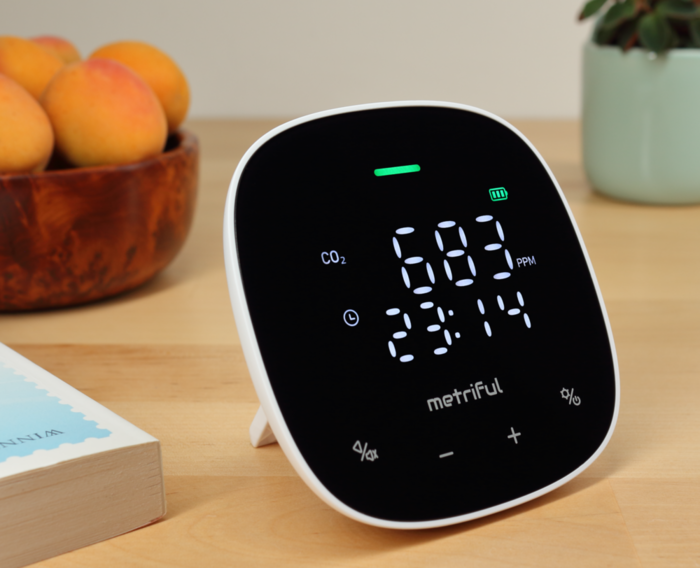
Metriful carbon dioxide monitor MD-21
Our electronic monitor measures and displays the CO2 content of the air around you.
It's a reliable and effective way to check air quality in your home or workplace.
The MD-21 benefits from a unique combination of features, while remaining easy to use.
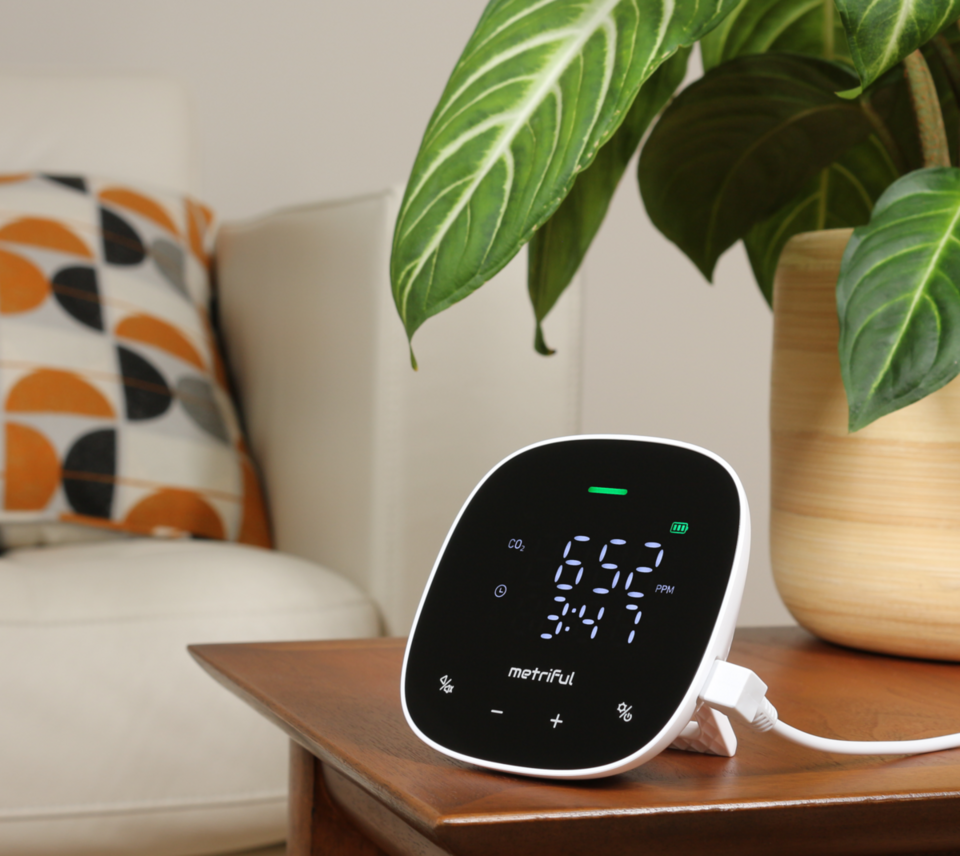
Your early warning system
Read the precise on-screen CO2 measurement, or simply view the air quality indicator light. The green-yellow-red rating can be understood at a glance.
Higher CO2 levels trigger an audible alarm (can be silenced if required), prompting you to take action.
You can relax while your air quality is constantly monitored.
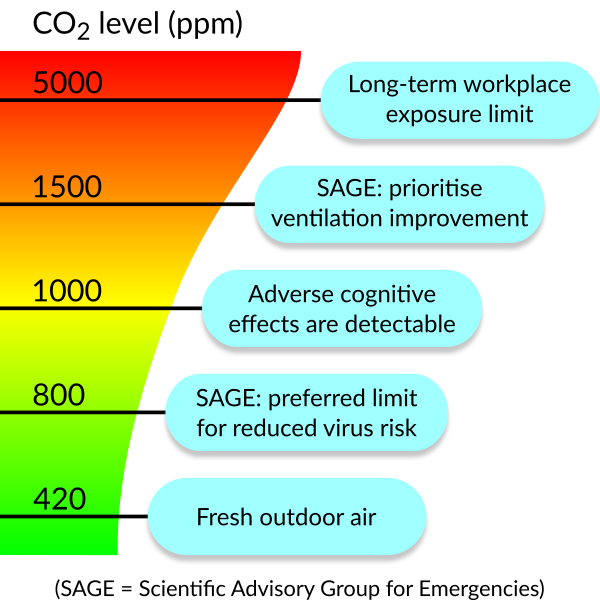
What is CO2?
Carbon dioxide (CO2) gas is exhaled in our breath and accumulates in indoor areas.
Low levels are harmless but discomfort increases as levels rise.
Research has shown that even moderate levels affect cognitive abilities, such as concentration and decision making.
Increased CO2 also signals a greater risk of respiratory virus transmission, including coronavirus, colds and flu.
How should you react to high CO2 levels?
- Open windows or doors to allow fresh outdoor air to enter
- Reduce overcrowding or increase separation of people
- Activate air conditioning, if available
- Take a break outside or in a better ventilated area
A CO2 monitor prompts you to make smaller changes earlier, preventing unhealthy situations from occurring.
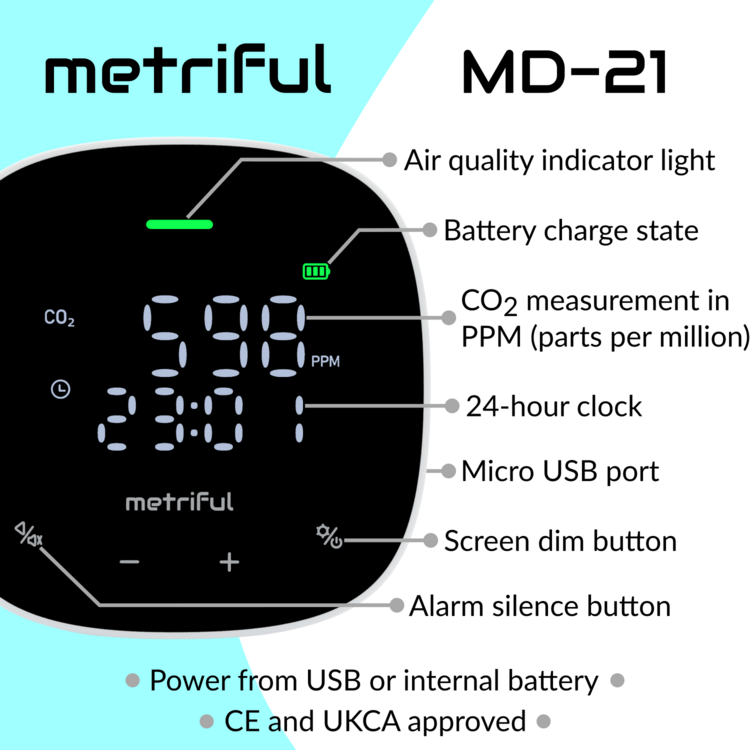
Special features of our CO2 monitor
- Bright display screen with touch sensitive controls
- Screen light can be disabled to prevent distraction and save energy
- CO2 alarm thresholds can be changed by the user
- Calibration function to ensure best accuracy
- Silence or prevent the alarm with a single button press
- Detailed user manual and online support available
- Uses a reliable NDIR sensor
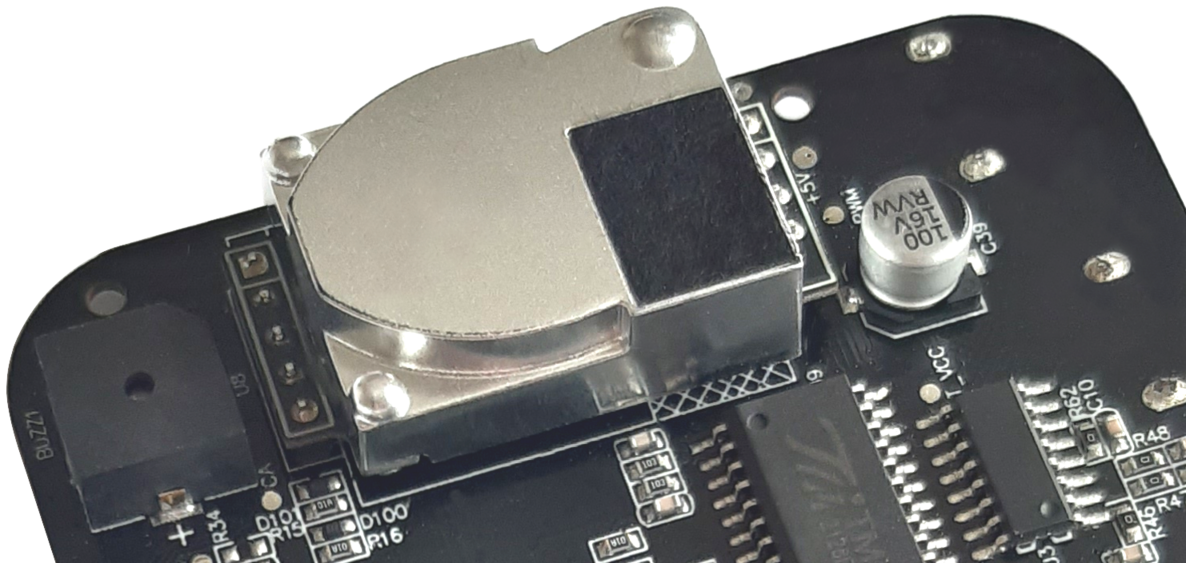
What is an NDIR sensor?
NDIR (Non-Dispersive Infrared) sensors are the best technology for compact and accurate consumer CO2 measurement.
Low quality monitors often use VOC sensors which, unlike NDIRs, cannot detect CO2 directly.
We use an industry-leading NDIR sensor in our MD-21 monitor.
Health authority recommendations
Benefits for the workplace
CO2 monitors offer particular advantages for work environments.

Reassurance
- Employees experience anxiety about virus transmission in shared spaces.
- Knowing that the problem is being monitored improves morale and confidence.

Planning
- Know when to limit room occupant numbers or usage time.
- See how long air quality takes to recover after intensive use of a room.

Financial
Better ventilation management results in:- Reduced staff absences due to reduced virus spread.
- Heating cost savings by avoiding excessive ventilation.
For details of our information sources, please see our list of references.





